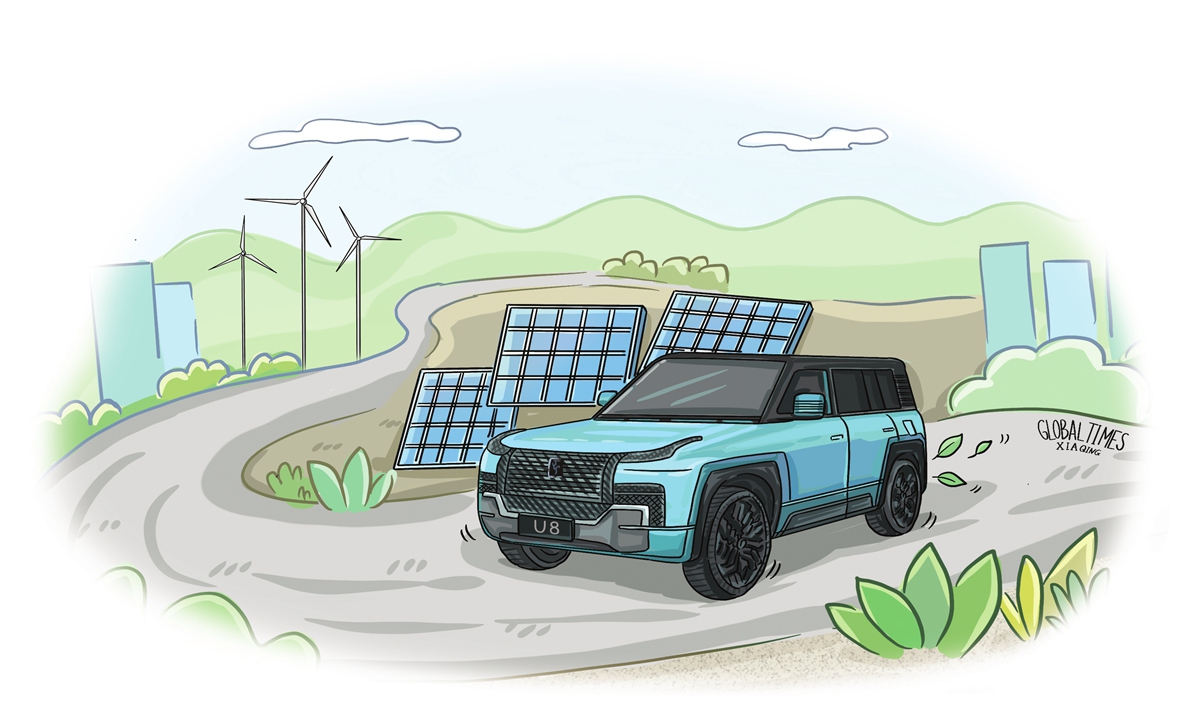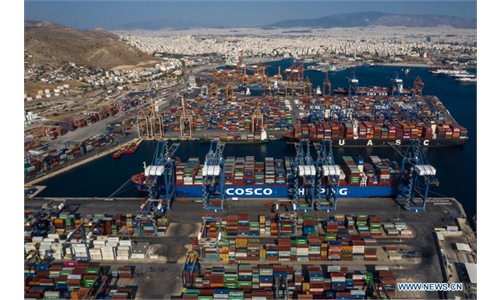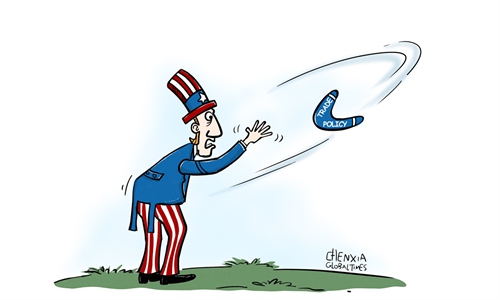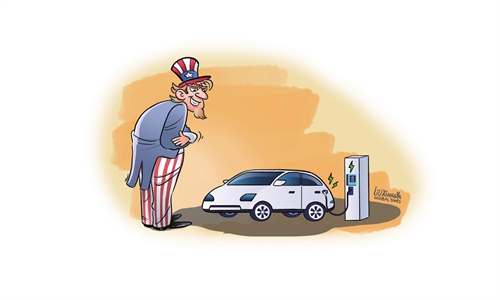
Illustration: Xia Qing/Global Times
The news that Chinese electric vehicle (EV) giant BYD Co is in contact with the Italian government about building a second factory in Europe has attracted widespread attention. Despite the growing protectionist climate in Europe, the Chinese and European EV industry chains don't have to resort to confrontation. There's still the potential to strengthen cooperation to bring more opportunities for mutually beneficial development.In an interview at the Geneva International Motor Show, Michael Shu, managing director of BYD Europe, confirmed the contacts with the Italian government, noting that the need for a second European plant "depends on our sales - now we're making very good progress," Bloomberg reported on Tuesday.
The move came just months after the Chinese EV giant announced in December its intention to build a new-energy vehicle (NEV) production base in Hungary.
Given the background of the EU probe into state subsidies to Chinese EV makers and their anxiety over substantial Chinese EV exports to Europe, it is not hard to see that BYD's localization push in Europe is part of its efforts to navigate foreign regulatory challenges. Such a business solution may also be of great significance to the cooperation potential in the EV industrial chain between China and Europe.
Chinese EV exports have risen sharply in recent years, especially in 2023. Chinese car exporters shipped more than 1.2 million NEVs last year, up 77 percent from 2022, according to data from the China Association of Auto Manufacturers. That helped China surpass Japan as the world's top vehicle exporter for the first time, according to Chinese media reports. Europe has become a major destination market for Chinese EVs.
In this context, US and Western media outlets have played up the "China threat" theory targeting Chinese manufacturing, depicting Chinese companies as a threat rather than a partner for cooperation. Their purpose of creating the "threat" theory surrounding Chinese EVs is to protect American interests and to influence public opinion in favor of trade barriers and conservative policies.
What Europeans need to see is that all of this is a US tactic to shift the focus and blame of its own protectionism, and that even Europe is a victim in the face of US trade barriers. Therefore, Europeans should not fall for the "China threat" hype from the US and should see that Chinese manufacturing has never been a threat, but rather a driving force for development and cooperation.
There is no denying that the EU and European car industry may be concerned about rising imports from China and their price competitiveness. But the advantages of Chinese EVs come from mass manufacturing capability, not subsidies or unfair competition means. Blocking trade and investment between the Chinese and European EV industries is not only not conducive to the development of the European auto industry, but also goes against free trade rules.
Take BYD as an example. The Chinese company just overtook Tesla as the world's biggest EV maker in the last quarter of 2023. Its rapid growth doesn't rely on subsidies, but hinges on strong products, technology and supply chain management flexibility.
Europe's huge demand for EVs during its transition toward a low-carbon economy has also played a role in its growth.
Once BYD produces in Europe, its pricing mechanism may comply with local markets and standards, while its supply chain management could bring new inspiration for local producers in terms of cost efficiency, which could offer more cooperation choices to the European EV industry and facilitate the local transition toward the green economy.
The auto industry in China and Europe has extensive cooperation potential and common interests. It is sincerely hoped that both the Chinese and European governments and companies can work together to strengthen communication, address each other's concerns, properly handle EV-related trade friction, and jointly promote the development of the EV industry to achieve win-win results.



